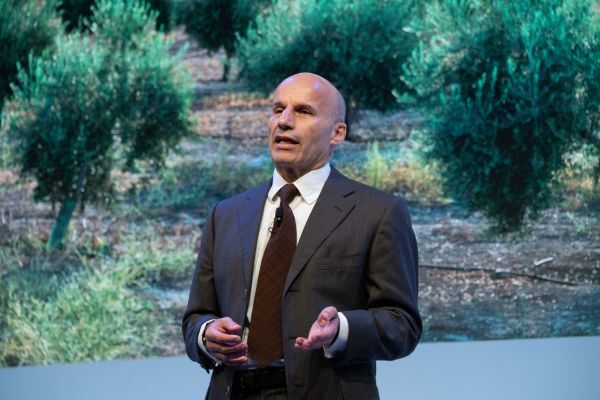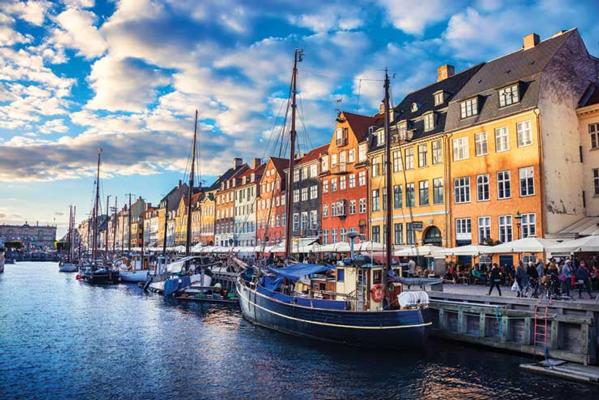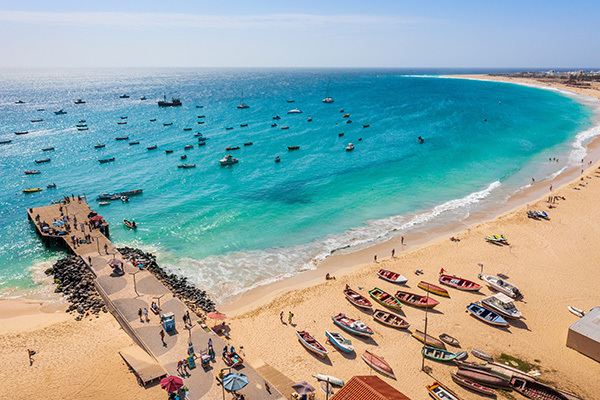Why budget holidays and green taxes don’t mix – plus five other travel talking points
 Harry Kemble
Harry KembleWith Abta on the cusp of celebrating its 75th anniversary, 240 delegates arrived in Costa Navarino in Greece for the travel association’s 2024 Travel Convention.
On stage, several high-profile panellists and speakers addressed the most pressing industry-wide issues.
These included questions around Abta’s role; why destinations are increasingly turning to green levies; how the industry can encourage travellers to think more sustainably; is the travel industry trustworthy in the eyes of consumers? And what really is the future of the high street?
In his opening remarks, Abta chief executive Mark Tanzer underlined that the travel industry is really a “sector of sectors”. “If we want to continue the amazing success story that tourism has been over the past 75 years, we need to find common cause in tackling the challenges ahead,” he told delegates.
Tanzer’s conclusion was clear – travel needs to have a collaborative approach if it is to succeed. The answers shared on stage on how to achieve, however, were not always obvious.
Here are the key takeaways from the two-day conference.

Abta’s relevance in 2024
Since the pandemic, Abta – and other travel associations – are increasingly asked by members “how much power and influence do you actually have?”
During a panel discussion, Abta chief executive Mark Tanzer was quizzed about the value of Abta today.
Highlighting Abta’s recent lobbying efforts, he said: “If you look at our public affairs and policy side, we’re doing the spade work for members. We’re not just talking to the government but the opposition too.”
Tanzer told delegates Abta had seen around 100 new members join its ranks. But he added: “We had very high numbers of renewals which is the ultimate sign that members think they we’re doing a good job for them."
Abta, he argued, provided its 808-strong membership with “a better base level of understanding” about issues impacting travel.
“The value of the brand for all of our members is immense,” he said. “We cherish that. If we did not have Abta, you would want to invent it.”
Tanzer acknowledged that Abta is sometimes limited by the fact it is a “broad church” with myriad members. “We’ve had issues where not everybody has the same commercial interests,” he explained. “When there is a stalemate, the tie-break is what is good for the customer.”
EasyJet holidays chief executive Garry Wilson, who joined Abta’s board of directors in 2021, admitted it is “far easier” to run a business rather than an organisation which represents different members’ interests.
“Abta is trying to represent the needs of everyone,” said Wilson. “The one lookout is in trying to please everyone, you can please nobody. Abta’s strength is making sure it has that core focus.”
The debate around green taxes
Wilson also fired a warning at destinations that jump on so-called green taxes. “If you introduce a green tax which is going into a big pot, we have got a problem with that,” he said.
“Destinations are all jumping on green taxes. There has to be a long-term strategy so people can prepare for that [extra cost]. It’s putting hundreds of pounds on the cost of family holidays.”

In a move designed to address sustainability issues, Greece recently announced a rise in its climate resilience fee on hotels and other accommodation.
Running from April to October the climate resilience fee on hotels and other accommodation will increase from 0.50 euros to 5 euros.
Speaking on a panel debate, Greece National Tourism Organisation UK and Ireland director Eleni Skarveli dismissed concerns about the tax hike, insisting: “I don’t think this is an issue.”
She said that so far this year the levy had not affected tourism numbers.
Tellingly, an easyJet holidays’ promotional video was played in between sessions with the message "making sustainable holidays mainstream".
Wilson said: “We need to bust the myth that if you want to be more sustainable it is more expensive. Real-life solutions to social, environmental and economic problems are available.”

Sustainability as part of the holiday experience
During the "Tourism for good" panel, Intrepid Travel’s UK and Ireland director Hazel McGuire highlighted the new CopenPay initiative in Copenhagen, which encourages travellers to think and act more sustainably in the Danish capital.
McGuire said destinations are generally thinking differently about sustainability, noting the example of Venice which had limited groups of more than 25 people.
On Copenhagen, she said: “If you pick up some litter or take public transport you might get a glass of wine, a free coffee or get some money off an experience.
“[CopenPay] is a really nice example where something positive is happening and people are giving something back.”
Writer and filmmaker Richard Hammond, who founded the Green Traveller website in 2006, said he believes if sustainability can become part of the holiday experience then travellers would be more inclined to be environmentally conscious.
How regulation – and AI – is driving change
Speaking on a panel discussions titled "Reframing leadership on sustainability", Linden Coppell, MSC Cruises’ vice-president of sustainability and ESG, argued regulations were making travel firms operate more sustainably – not customers.

“We’re definitely aware of the growing [customer] sentiment towards responsible tourism,” she said. “Are customers driving our agenda at the moment? No, I would not say they are. It’s the regulatory environment that is. We need to show that we’re being responsible. People trust us to be responsible.”
During the same panel discussion, Matt Callaghan, chief operating officer at easyJet holidays, revealed how the operator had used artificial intelligence to reduce food waste at one restaurant in a hotel in Tenerife.
“Over a 12-month period, we invested €30,000, we saved that hotel €114,000 in food waste. Food waste reduced by 68%.”
He added: “We’re now developing a video to show all of our hotel partners. We know that we are a brand that can be trusted.
“There is incredible technology which exists today that can help address the big ESG challenges.”
'Is the high street declining?'

On the fifth anniversary of Hays Travel’s Thomas Cook takeover, Hays Travel Group finance director Ken Campling said the agency giant remains invested in the high street before highlighting how it had spent £40 million on acquisitions in recent years.
Since 2019, Hays Travel has acquired Explorer Franchise in 2021; Just Go’s 45 north-west branches, and Travel House’s 16 shops in south Wales in 2023; then three Holiday With Us branches in Lincolnshire; and 19 Miles Morgan Travel shops in the south-west and south Wales in 2024.
“We’ve got 490 Hays shops,” added Campling. “We’re still seeing growth on the high street. We’re always looking at where we can improve things.
“As a business, we’ve got to keep our eyes open on all forms of distribution, but we don’t see the high street declining.”
How cash flow could change
Tanzer said anecdotal evidence suggested customers were delaying booking to see how climate events played out which could cause cash flow issues for the industry long term.
[Climate change] is going to make things more difficult for our industry,” said Tanzer. “It’s not just that it’s going to be hotter, you don’t know if it’s going to be hotter [when the holiday happens].
“What I’m hearing from people is that customers are saying that they will book later. That becomes self-perpetuating.
“If people are booking later the whole cash flow of the industry changes because people are taking a different approach to risk. People are thinking ‘why do I have to book this far out when things may change?’”
Sign up for weekday travel news and analysis straight to your inbox

Harry Kemble
Supplier Directory
Find contacts for 260+ travel suppliers. Type name, company or destination.
















